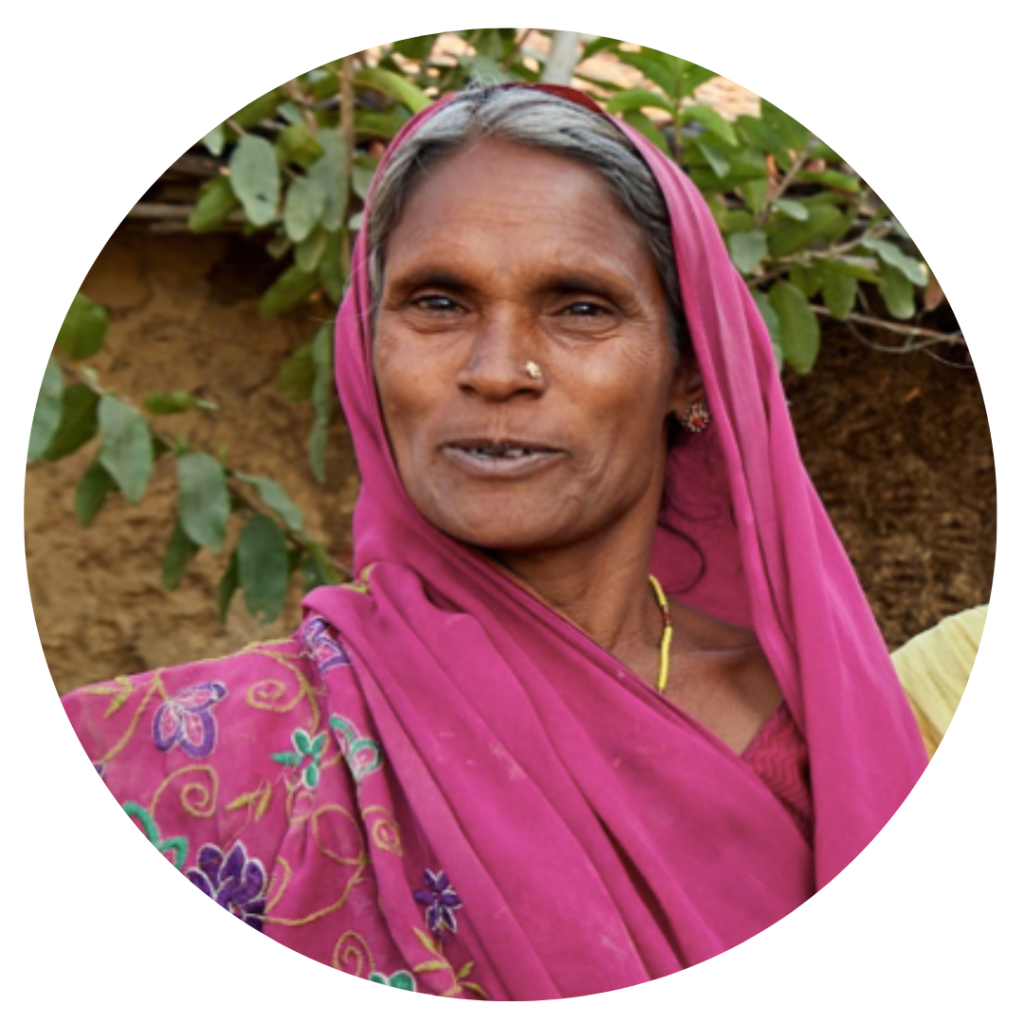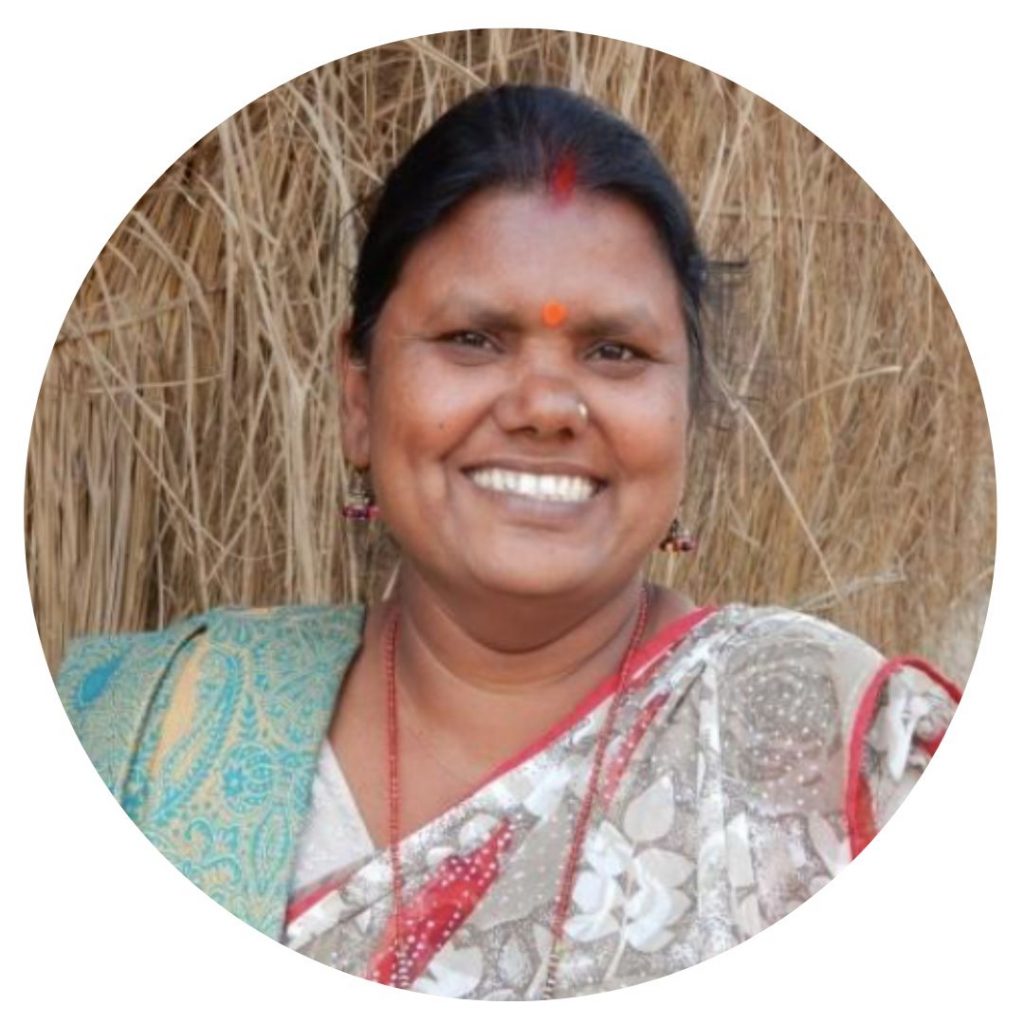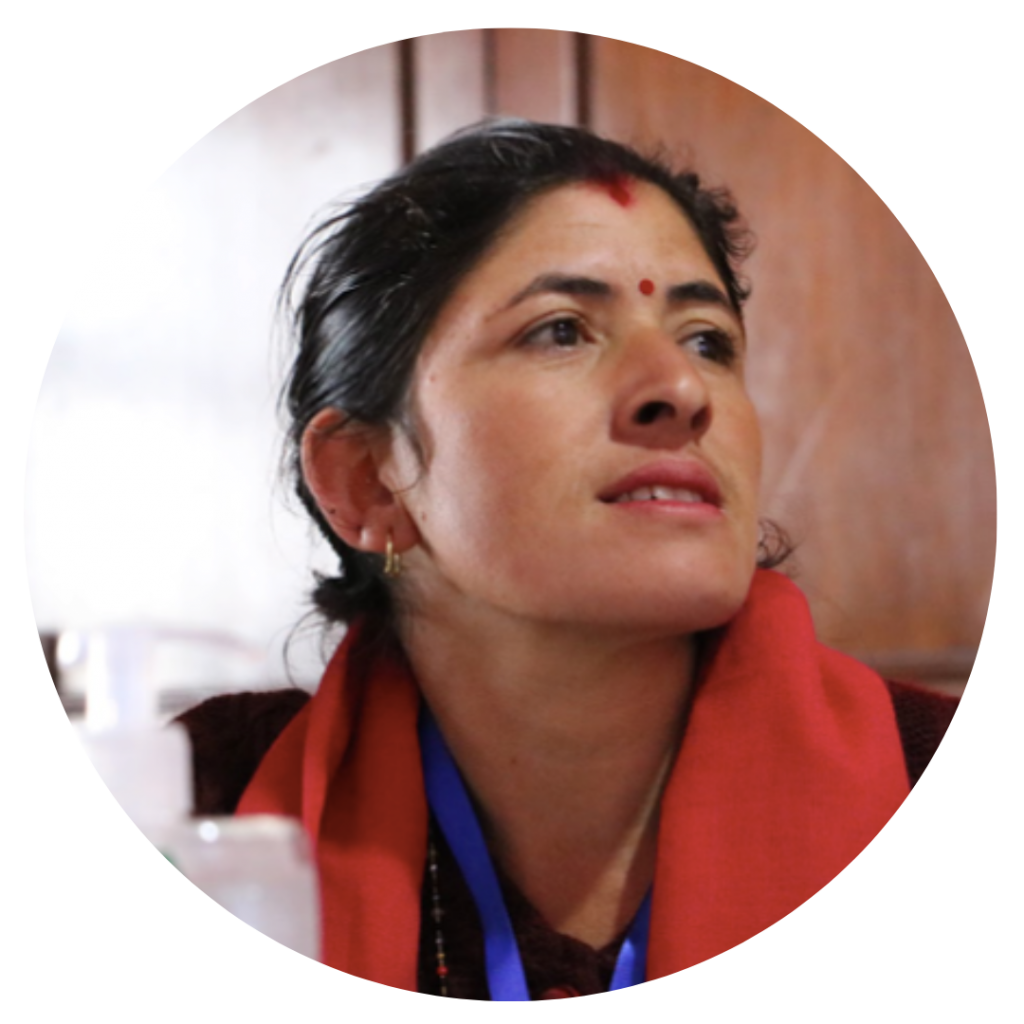Women are leaders at heart! They care, they nurture, they help. They give meaning and direction to life. We need to support and include them whenever we can.
Shalav Rana, Director of Operations in Nepal.
On the occasion of International Women’s Rights Day, 8 March, 2022.
Karuna-Shechen reiterates its commitment to women !
Whether it’s our enterprising and resilient beneficiaries, or our committed employees in the field, Karuna is lucky to work with inspiring women. Discover their portraits!
Together, let’s celebrate the success of these women !
Make a donation to support them.
We are working with and for women
At Karuna-Shechen, we are empowering women to become key agents of change, and true sources of inspiration for their communities.
Not only do our programs give women access to education through literacy and numeracy workshops, we also improve the livelihoods of village women by providing access to training and job opportunities. In total, more than 1,500 women have benefited from these programmes in 2019.
Women are also training to become solar technicians, or drivers of e-rickshaws – small electric taxis. . By working in traditionally male-dominated fields, women are breaking gender barriers and setting an example for future generations.
Together, let’s break the taboos : let’s empower women to become leaders of change !
They inspire us
Karuna supports women who wish to start their own business by helping them finance their projects, and by accompanying them through their professional training. Daulati, who lives in Bihar, India, is one of them :

“Because I am an old widow, it is very difficult to find a job. I wanted to open a vegetable business, but I couldn’t afford it. When the lockdown came last year, I thought there was no hope and I would have to beg. When Karuna offered to support small businesses, I saw my chance! I was nervous at first. I didn’t think I could start from scratch at my age ! Now I sell fresh vegetables to people in my village and the surrounding villages. I earn enough money to be independent and live on my own.”

Sabita leads the Karuna project in her district. She is also the coordinator of the health projects and raises awareness among the village women. She says: “I have received very positive feedback from the project. These women don’t just earn a better living; they improve their numeracy, have a better understanding of the market, and have more confidence in themselves. It is a great pride, and a joy for me to work on a women-centered program.”
Devi lives in Nepal in the village of Udaypur with her husband and two daughters. In January, she trained with Karuna to become a solar technician so she could install and maintain solar panels :

“I never thought I would ever be able to benefit from such training. I think women are just as capable as men, if they have access to the same education. I took a 15-day training course in Kathmandu. My husband encouraged me, and looked after the house and children during this time.
People in my village, however, were not supportive at first. They said that a woman could not climb on the roofs to install solar panels. Some villagers said that men should be trained, not women. But we insisted. We were going to be trained !
I’m going to open a small business too I’m going to manage a budget and analyze the market as best I can, so that I can seize opportunities, and take initiatives.”
You too can take action with and for these women.
Keys to understanding – women, gender equality and leadership
The World Economic Forum has been studying a Global Gender Gap Index every year since 2006, based on four indicators : education, health, economics, and civil and political liberties. In its latest report, it states that gender equality at the global level will not be achieved for the next 99.5 years (1).
In the 153 countries studied by the organization, it would take a century to end the gender inequalities, and insure that women have the same rights and opportunities as men i. Worse still, if one were to rely solely on the criteria of participation and job opportunities , gender equality would be achieved in 257 years.
While the majority of countries are approaching gender equality in the areas of health and education, political and economic inequalities remain prevalent. It is not just about pay or justice: women worldwide do not have as much opportunity and visibility as men to attain leadership positions.
Leadership is the ability of an individual to undertake, and to direct a project autonomously, and to make important decisions (2). This does not apply only to the political sphere. Awoman can be a leader in the economic and cultural sectors, in the arts for example. Leadership applies to the professional and personal spheres, and in the home. It is also noted that when a woman has strong professional responsibilities, she faces many obstacles. Work organization and working hours are often not adapted to her family responsibilities. In addition, there are salary inequalities, deep-rooted stereotypes, and a culture that mistrusts strong women, all of which can contribute to her failure.(3).
While more and more women are reaching the spheres of leadership in the West, the gap remains huge in our focus countries, India and Nepal. Both countries were structurally changed by the massive entry of women into the paid labor market in the mid-1990s (4). This change has disrupted the traditional family organization, which was centered around the man’s single income and the woman’s central involvement in household tasks.
This reversal of the system involves challenging the patriarchal stereotypes that are ingrained in these predominantly Hindu societies. For example, when a woman has a job, or runs a micro-business, her husband is often the one who makes the important decisions regarding her business (5). The same is true of the home. While women manage it on a day-to-day basis, they have a limited role in decision-making. This is all the more pronounced in rural areas, which stand in contrast with cities where progressive middle classes are emerging.
“Women’s leadership in India has been slow and uneven, with rural women unable to enjoy the same access to health care, education, employment, information and decision-making powers as their urban counterparts. There is still a lot to be done to address the challenges faced by women in this patriarchal society”, Anyesha, Communication and Documentation Officer for Karuna India
It is in this economic and cultural context that Karuna acts alongside these women, to enable them to gain greater recognition in society. The communities actively participate in defining the objectives and activities of the programs set up by the association.
Understanding, raising awareness and sharing is also taking action !
Resources to go further…
- Gender equality matters in the response to Covid > Read the article
Nos sources
- Global Gender Gap Report 2020, World Economic Forum, 2019. http://www3.weforum.org/docs/WEF_GGGR_2020.pdf
- Goleman, D., Boyatzis, R.E., and McKee, A. (2003) The New Leaders: Transforming the art of leadership. London: Sphere
- Vinkenberg; Engen; Eagly; Johannesen-Schmidt (2011). “An exploration of stereotypical beliefs about leadership styles: Is transformational leadership a route to womens promotion?”
- Chaudhuri, S. (2016). Seeking to re-balance work and life in Indian organizations: A dream or a distant reality? Work Life Balance Working Group Newsletter, 9, 6-9
- Farnworth, C.R., Jafry, T., Lama, K. et al. From Working in the Wheat Field to Managing Wheat: Women Innovators in Nepal. Eur J Dev Res 31, 293–313 (2019)
